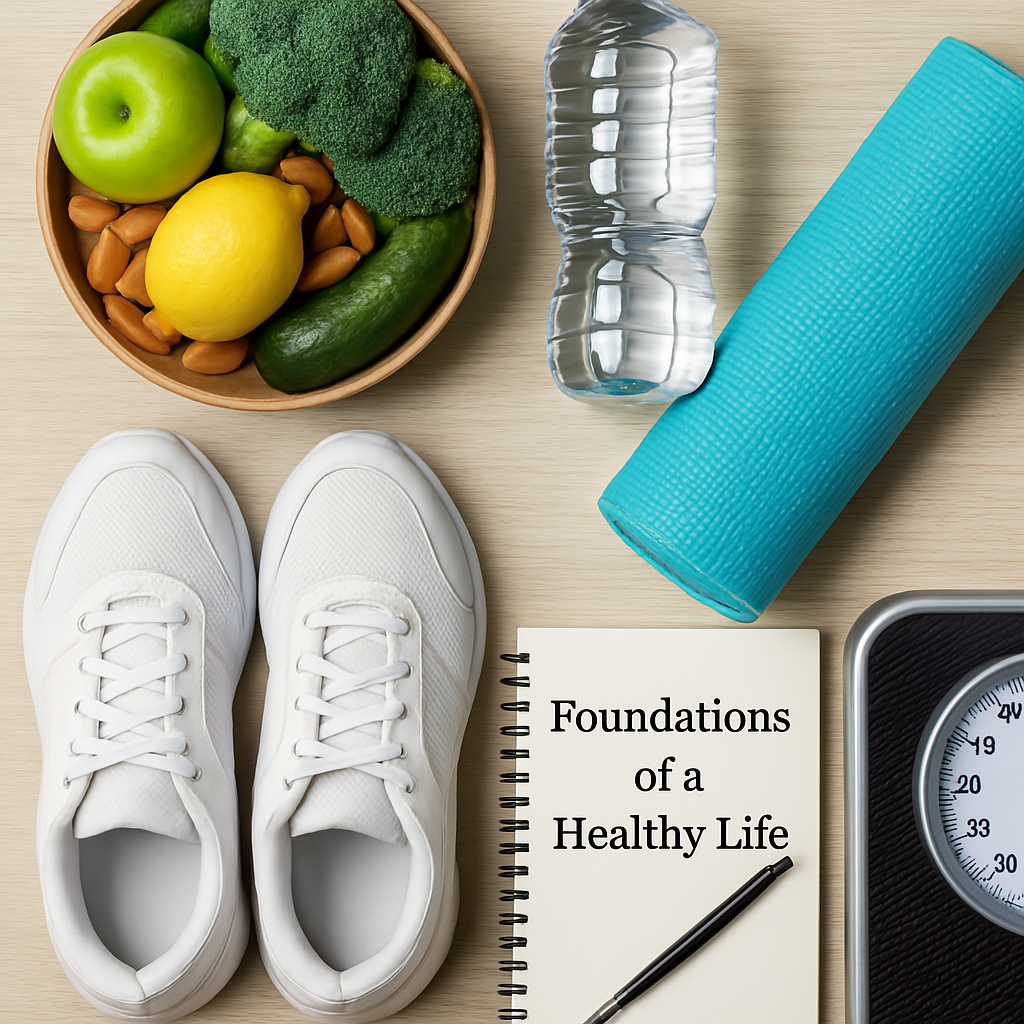In today’s fast-moving world, where productivity often takes priority over well-being, the concept of a “healthy lifestyle” can feel both vague and overwhelming. Most people associate it with dieting or exercising, but a truly healthy life is the result of strategic systems, conscious habits, and a deep understanding of balance — between effort and rest, input and output, mind and body.
🔹 1. The Myth of Motivation: Why Systems Matter More
One of the most common misconceptions about health is that it relies on willpower or motivation. In truth, neither are reliable. Motivation fluctuates. Willpower gets drained. What keeps people consistent are systems — routines designed to reduce friction.
For example, preparing meals in advance removes the daily decision-making burden. Scheduling workouts into your calendar like meetings increases adherence. Placing a water bottle on your desk reminds you to hydrate. These are small environmental cues that make healthy choices easier and more automatic.
James Clear, author of Atomic Habits, states: “You do not rise to the level of your goals. You fall to the level of your systems.” Health is not about trying harder, but about designing smarter.
🔹 2. Sleep: The Forgotten Performance Pillar
You can eat the cleanest diet and train six days a week, but without sleep, your internal system will collapse slowly. During sleep, your brain consolidates memory, your muscles repair, and your immune system resets.
Scientific reviews consistently show that 7–9 hours of quality sleep are essential for hormonal stability, appetite regulation (via leptin and ghrelin), and cognitive clarity.
Chronic sleep deprivation leads to:
- Increased cortisol (stress hormone)
- Higher blood pressure
- Cravings for sugar and fats
- Reduced decision-making power
Improving sleep hygiene — such as avoiding blue light at night, creating a dark and cool room, and following a consistent bedtime — can have a dramatic effect on both physical and mental well-being.
🔹 3. Daily Movement: Beyond the Gym
Being healthy doesn’t require you to be an athlete. It requires you to move your body daily, in natural and meaningful ways.
While structured training is important (strength, cardio, mobility), what you do outside the gym — NEAT (Non-Exercise Activity Thermogenesis) — is equally powerful.
Walking, cleaning, carrying groceries, taking stairs — these low-intensity, spontaneous actions contribute significantly to caloric burn, metabolic health, and joint lubrication.
Walking 8,000–10,000 steps/day correlates strongly with reduced mortality, better blood sugar control, and improved mood.
The modern sedentary lifestyle is a bigger threat than most people realize.
“Movement is medicine — and the dose is daily.”
🔹 4. Nutrition as a Feedback Loop
Nutrition is not punishment, nor is it perfection. A healthy relationship with food is rooted in awareness, education, and flexibility.
Rather than obsessing over macronutrients, it’s more powerful to ask:
“How does this food make me feel two hours later?”
A lifestyle-focused nutrition plan includes:
- Whole, unprocessed foods as the base
- Consistent hydration (2.5–3.5L/day depending on activity)
- Smart portioning without calorie obsession
- Occasional indulgence without guilt
When you see food as fuel and function, rather than reward or punishment, your mindset shifts — and so does your consistency.
🔹 5. Mental Clarity & Emotional Regulation
Perhaps the most underestimated pillar of a healthy life is the mind. Anxiety, reactivity, poor boundaries, and unresolved trauma can sabotage even the best physical routines.
Practices like meditation, mindful journaling, cognitive reframing, and therapy help regulate the nervous system and allow the body to exit “survival mode”.
A healthy brain:
- Manages stress constructively
- Sleeps deeper
- Makes better decisions
- Recovers faster from setbacks
The mind and body aren’t separate systems. They are mirrors of each other.
🔹 6. The Power of Consistency and Identity
The healthiest people don’t do extreme things — they do simple things consistently.
They don’t define themselves by diets, but by identity:
“I am a person who takes care of myself.”
When your identity aligns with health, habits follow naturally.
Success in this area isn’t measured in weight loss or visible abs. It’s measured in:
- Energy throughout the day
- Ability to handle stress
- Sleep quality
- Joy in movement
- Mental presence
🔚 Final Thoughts
A healthy lifestyle isn’t a final destination — it’s a system of behaviors anchored in self-respect.
It’s not about being perfect, but being intentional.
It’s not about control, but about connection — with your needs, your environment, and your future self.
In a world pushing us toward burnout and shortcuts, choosing to live with awareness, balance, and care is a revolutionary act.
And it begins today — with the next simple, conscious choice you make.


